20. Jane Eyre (2011, Cary Joji Fukunaga)

Based off the novel from the 1840s, the character arcs that the lead character (Mia Wasikowska) goes through, seem a little too broad. There are so many trials and tribulations that as a whole, seem rather rushed for only 2-hour-long film.
With regards to Fassbender, there is something to be noted of an actor growing into his or her star persona. While Fassbender has been impactful in his performances prior to 2011, Jane Eyre is the first film where Fassbender looks and feels matured into a “star”. By no means was Jane Eyre his best film to date (April 2011), yet there is a richness about this picture that Fassbender is perfectly suited for.
Audiences had seen his fury in Hunger and 300; his fierceness in Blood Creek and Jonah Hex, and his rugged ravinesh in Angel and Fish Tank — yet with Jane Eyre, Fassbender remains masculine. A wealthy and jaded man, paired against an inexperienced maden creates ideal contrast, particularly with the plainness of Wasikowska’s looks.
19. X-Men: Apocalypse (2016, Bryan Singer)
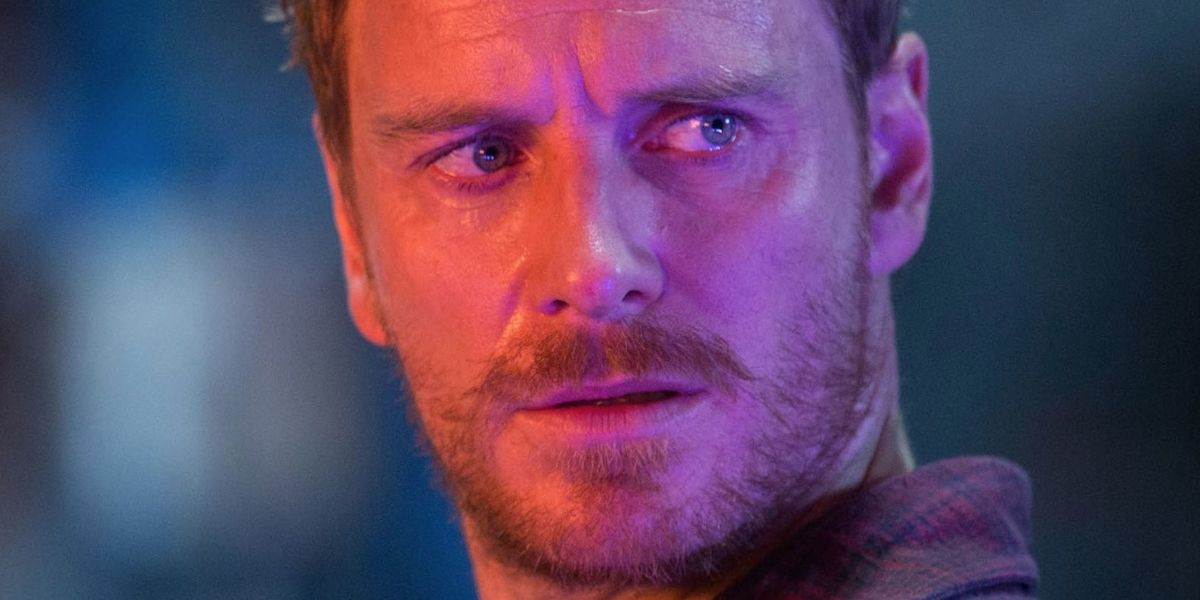
The weakest of the three specifically because X-Men: Days of Future Past placed the bar so high and the relationships were re-defined, that now, up against a new seemingly undefeatable foe in Oscar Isaac’s En Sabah Nur is a hard pill to swallow. The formation of the X-Men by the finale is a given before the ending. In the two previous installments, historical events were a plot-point of audience’s attention, whereas this “apocalypse” becomes too fantastical.
Although audiences will gravitate to whichever character they’re attracted to, Fassbender is still the heavy emotional strong hold of the X-Men franchise. The trilogy routinely places empathy on his character, yet Magneto’s arch always seems to reset at the start/finish of each film. With X-Men: Apocolypse, Fassbender is again the seemingly antagonist, who exits the story as the outsider to the X-Men; a dulling repetition of the two previous films.
18. The Snowman (2017, Tomas Alfredson)
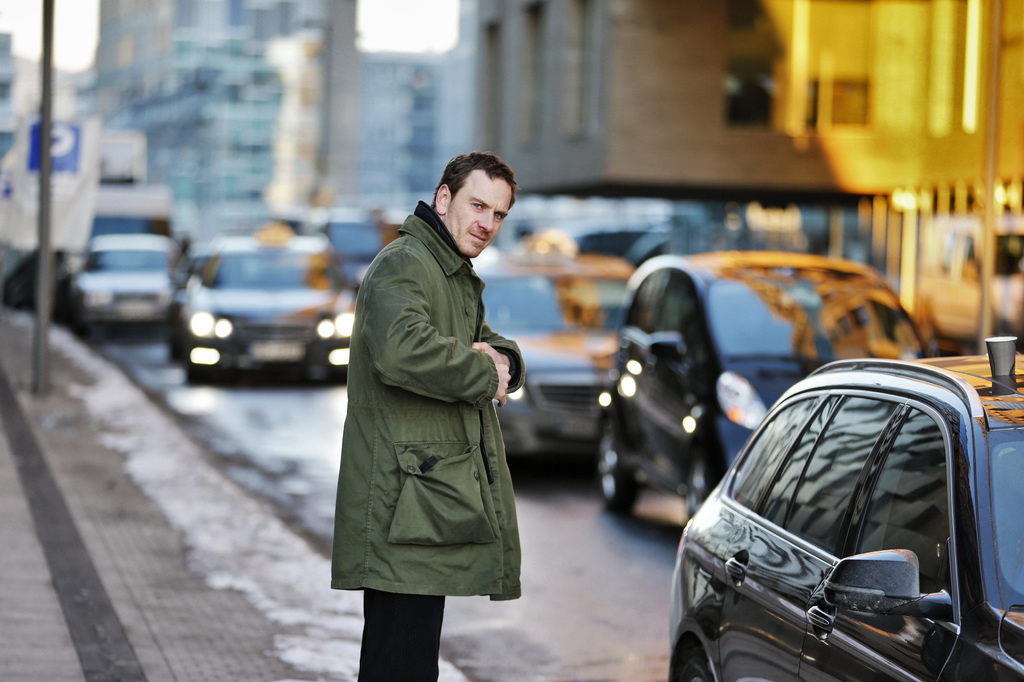
Considered one of Fassbender’s weaker films, The Snowman has the filmmaking excellence behind it (actors, producers, editor, composer), but falls short of the grit one would expect. The film is masterfully shot (cinematography Dion Beebe’s work is on par with his other highly praised work), yet the complex noir novel has a bumpy transition to the screen.
In his later years, Fassbender’s performances are softer and quieter (Slow West; The Light Between Oceans) with an emphasis on subtle nuances (Song to Song). As a worn down alcoholic, Fassbender’s dry and dazed performance is rather appropriate for the bitter Olso air.
17. Haywire (2012, Steven Soderbergh)
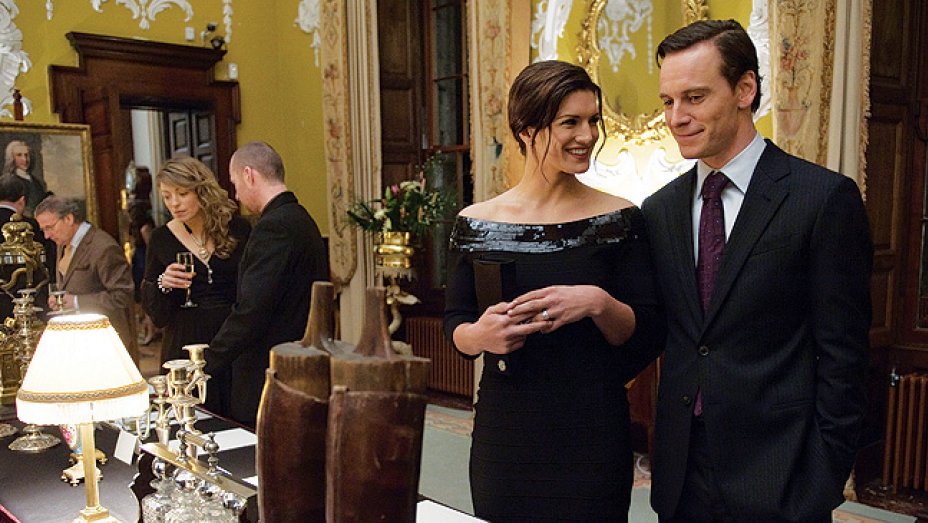
Gina Carano and Soderbergh’s stylized aesthetic are the highlights of this film. The thriller is complicated, slightly confusing, yet works itself out by the finale.
Haywire is not badly made, rather it’s sadly forgettable and although Fassbender’s role only lasts about a reel’s worth of screen time, he gets one of the best fight scenes of the film. A movie littered with super-stars, Fassbender gets to be among the elite heavy hitters of Hollywood at this stage of his career.
16. Shame (2011, Steve McQueen)
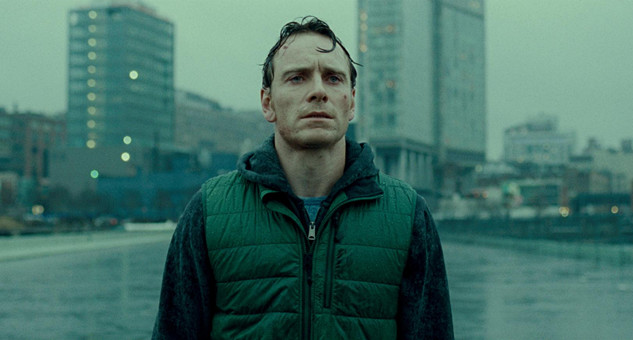
Previously Fassbender’s one authentic leading role was the gorey and unpopular Centurion (keeping in mind that with Hunger, he remains in only one-third of the drama despite being the main focus of the film). With Steve McQueen invasive style, extended close-ups and elongated shots, Fassbender is given a stage for one of his best performances.
Although Fassbender portrays an avid sex addict, arguably O.C.D., and ravishing in a cold metropolitan setting, there is a profound control to his performance. Fassbender seems always on the brink of a break down, and this control is what audiences and critics took as confirmation to see Fassbender as a serious powerhouse actor. Despite that his performances in Fish Tank and Hunger were equally award-worthy, it was Shame that displayed Fassbender’s full emotional range.
Again, 2011 was Fassbender’s “breakout year”, with the dramas Jane Eyre and A Dangerous Method (both under performed at the box office with $11.2 and $5.7 respectively), Fassbender would be reintroduced to audiences in a leading role on a bigger stage with X-Men: First Class. However it’s Shame, the art house film, that has been considered his breakout performance.
Despite low box-office return ($3.9 million in the United States; another $13.7 in the foreign markets), the NC-17 rating helped Shame’s popularity via the taboo of explicit sexuality. Nevertheless it was totally Fassbender’s performance, earning multiple award nominations that beckoned attention throughout the industry, despite the lack of screens Shame played on, or audience’s adversity to watch it.
15. 300 (2007, Zack Snyder)
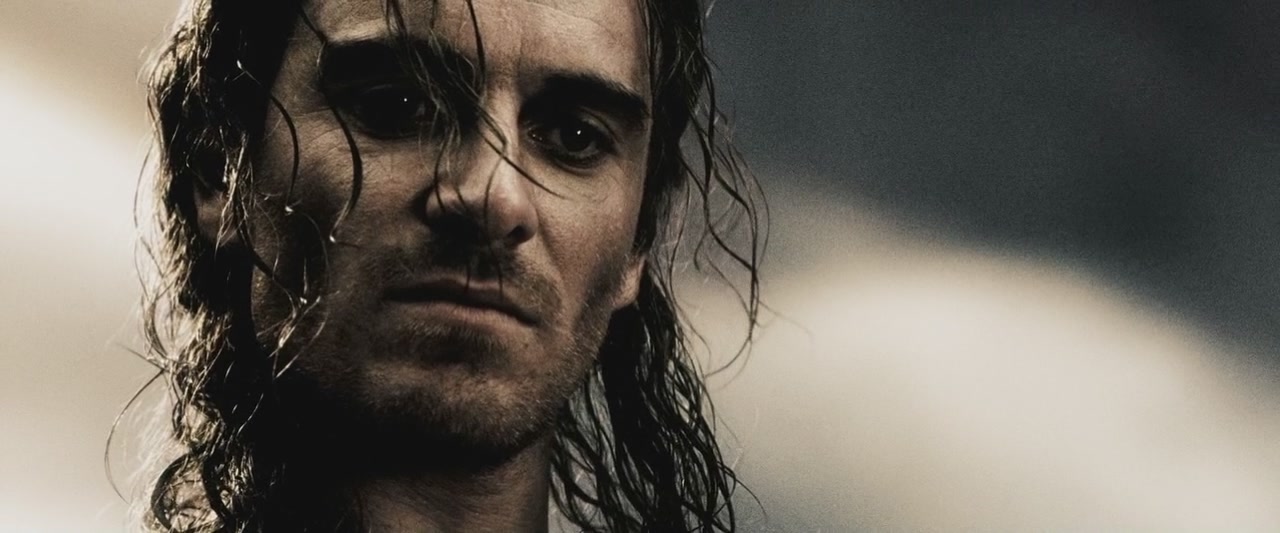
Prior to 300, Fassbender had starred in over a dozen various made-for-tv movies and television shows, yet 300 as his first formal Hollywood debut is fitting. His first line, yelled off camera, a fierce soldier speaking out of turn: “We are with you siare! For Sparta! For freedom! To the death!” instantly brings Fassbender forth from the masses of warriors.
Although only a supporting character, it helps that 300 was a blockbuster, one that quickly developed a fanbase, and became a benchmark for the R-rated comic book genre. Hence, 300 became a picture that producers and casting directors would, by default, take note of.
14. Trespass Against Us (2016, Adam Smith)
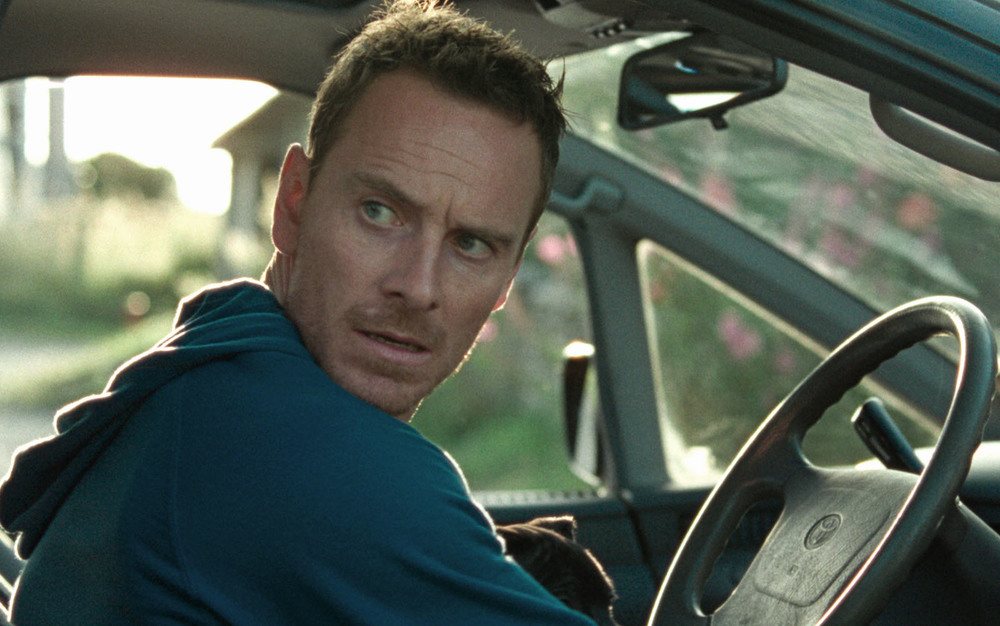
It’s a shame that the least financially successful title on this list (grossing a miniscule $5,700 at the box office) didn’t get a larger audience as it’s one of Fassbender’s better films. Set in a dirty slum in the U.K., Fassbender plays the son of a mafia father, with ambitions of creating a new and wholesome life for himself; a spin off the Al Pacino/Marlon Brando relationship in The Godfather (1972, Francis Ford Coppola).
There is nothing visually exceptional about Trespass Against Us, yet it has many gut wrenching moments of frustration, anger and betrayal culminating in pain on Fassbender’s own son. Brendan Gleeson ultimately steals the show, yet Fassbender’s performance is able to match him in (another) quiet fierce performance.
13. Inglourious Basterds (2009, Quentin Tarantino)
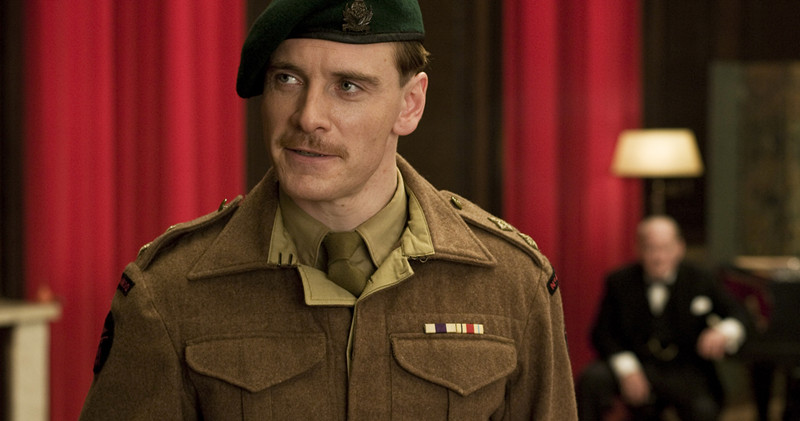
While it may not be Fassbender’s first big Hollywood film, it is the first time we see him share the screen with superstars, particularly Brad Pitt and Mike Myers. The role of an undercovered British film critic turned spy doesn’t allow for Fassbender to “show off” his dramatic acting chops (as opposed to Hunger or Fish Tank previously), yet in the drama of a Tarantino film, each character has a vital role to play.
Although it’s a short role (only three scenes), the financial and critical success of Inglourious Basterds propelled Fassbender’s status and recognizability. Were this listing ordered by importance or significance in Fassbender’s career from a biographical standpoint, Inglourious Basterds would be ranked higher.
12. The Counselor (2013, Ridley Scott)
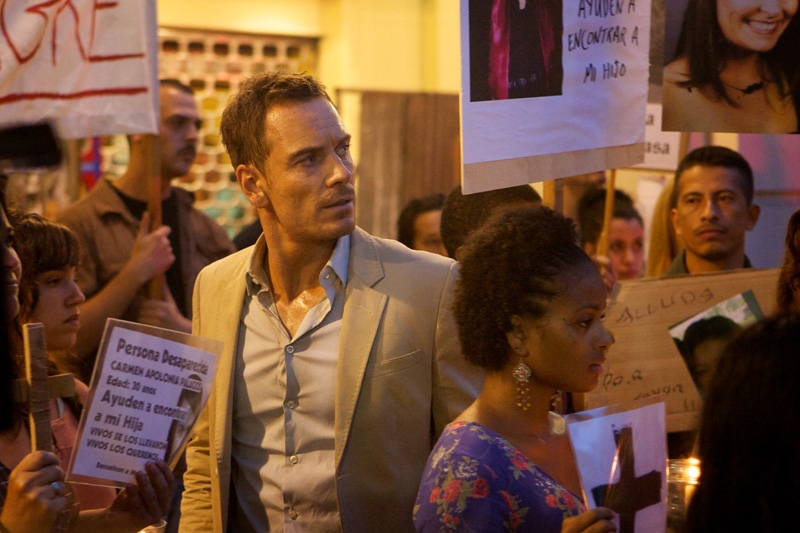
Initially criticized for its complicated narrative, the film is more intriguing on a second viewing remaining one of Ridley Scott’s underappreciated films. There is an elegance to the cinematography, the lavish sets, the costumes, and the provocative dialogue, contrasted against the rugged dry desert.
Fassbender remains the straight man throughout, surrounded by eccentric characters and an abundance of grizzly violence and erotic sexuality. His emotional decline becomes too heavy handed, outweighing his hurried rise in the drug dealing world. Still, arguably one of Ridley Scott’s underappreciated films.
11. Song to Song (2017, Terrence Malick)
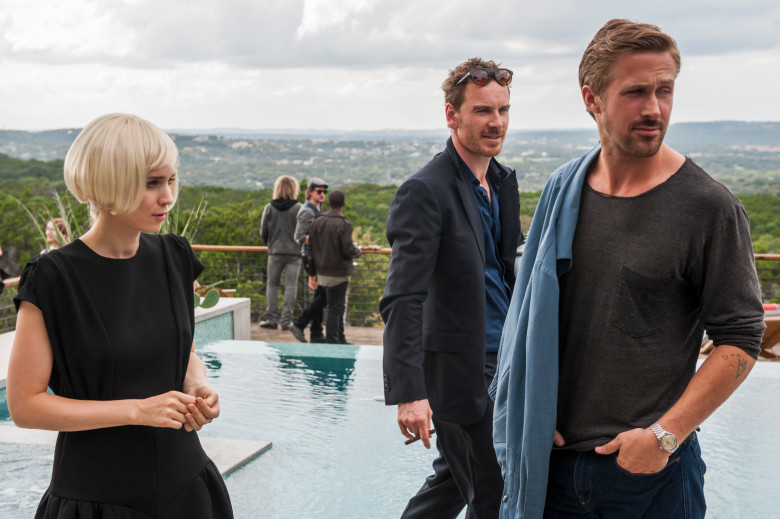
You can watch this film from the vantage point of any of the four main characters and see a distinct narrative unfold. As the wealthy “bad boy” music producer, you expect an outstanding performance from Fassbender. The restraint seen in Shame; Slow West; and The Light Between Oceans is gone. In Song to Song Fassbender is uncontrollably wild, living life on the edge (literally, as in various shots he leans over an edge).
The momentary nuances Malick shows, tell the audience that Fassbender is devilish, spending time with undesirable people, and ultimately ruining those around him. The character is shallow, and the audience last sees him a sad man wallowing in isolation, contrasting the blossoming romance between Ryan Gosling and Rooney Mara.